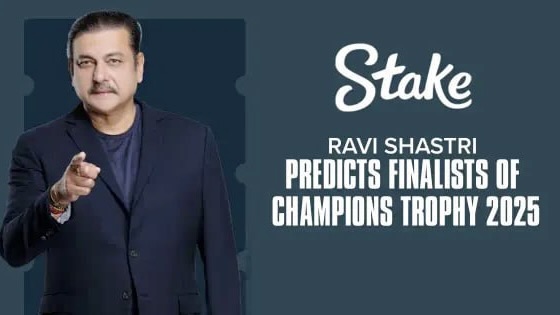Ravi Shastri Under Investigation for Stake Advertisement: Consequences for Celebrities in India

The Ministry of Information and Broadcasting of India (MIB) has initiated an investigation into Ravi Shastri — the former captain and coach of the national cricket team, who has been posting advertisements for the platform Stake for the past 11 months. The latest post was published on March 21, a day before the start of the new IPL season, and sparked a wave of discussions.
Stake Advertisement and Possible Consequences
Shastri actively used the X platform (formerly Twitter) to promote Stake, a betting company. On his page, he posted a message urging followers to participate in betting, along with a video message.
Although the post included a disclaimer stating that the content was not intended for Indian users and was available only to those over 18, this step may not be sufficient from a legal standpoint.
The Advertising Standards Council of India (ASCI) emphasized that adding a disclaimer does not absolve responsibility, as promoting gambling without a license in India remains illegal. As a result, ASCI has forwarded the materials to the MIB for further investigation.
Violation of Betting Laws in India
In India, betting operators are strictly regulated, and betting remains illegal in most states, with a few exceptions. According to the Public Gambling Act, sports betting is not allowed without the proper license and registration with the country’s tax authorities.
Ravi Shastri is not alone in his involvement in promoting gambling. Earlier, in 2022, the Indian government issued a statement warning against the spread of betting advertisements, claiming that such actions pose a risk to the financial security of citizens, particularly for the youth and children.
In response, Indian authorities took steps to combat such advertising campaigns, including so-called “masked” ads seen during cricket match broadcasts.
Celebrities’ Responsibility in Advertising Campaigns
Legal experts note that celebrities must thoroughly vet their advertisers to avoid legal consequences. If an advertiser breaks the law, the public figure involved in the advertisement may face serious consequences, including fines of up to $50,000 or a ban on advertising for up to three years.
Particular attention should be paid to the fact that gambling ads, even if not directly aimed at an Indian audience, may be perceived as a violation of the country’s laws. In Ravi Shastri’s case, adding a disclaimer cannot fully absolve responsibility for breaking the law.
Conclusion
This incident highlights the importance of adhering to regulations when advertising products, especially in sensitive areas such as gambling. The case with Ravi Shastri could set an important precedent for other celebrities promoting similar services and serve as a reminder of the need to comply with laws governing the market in India.
